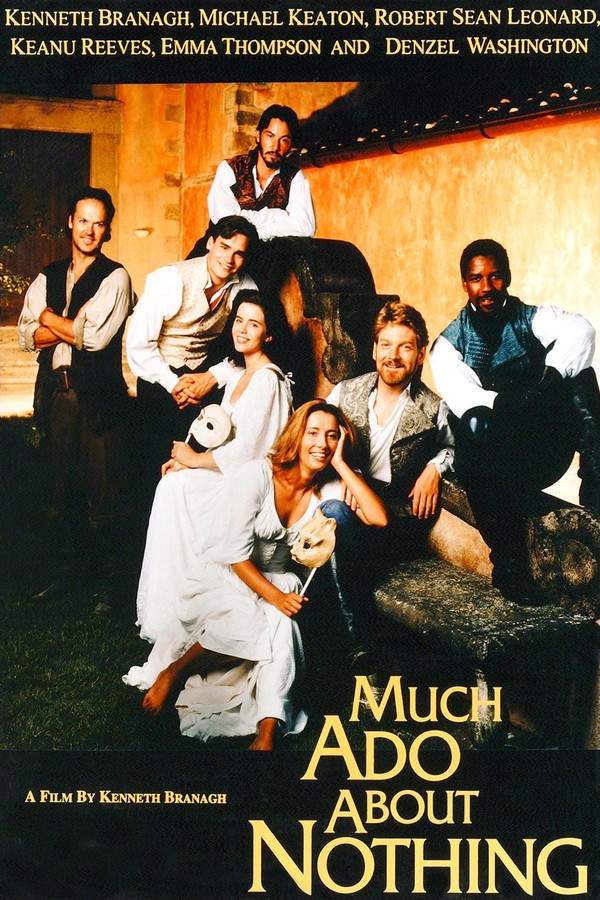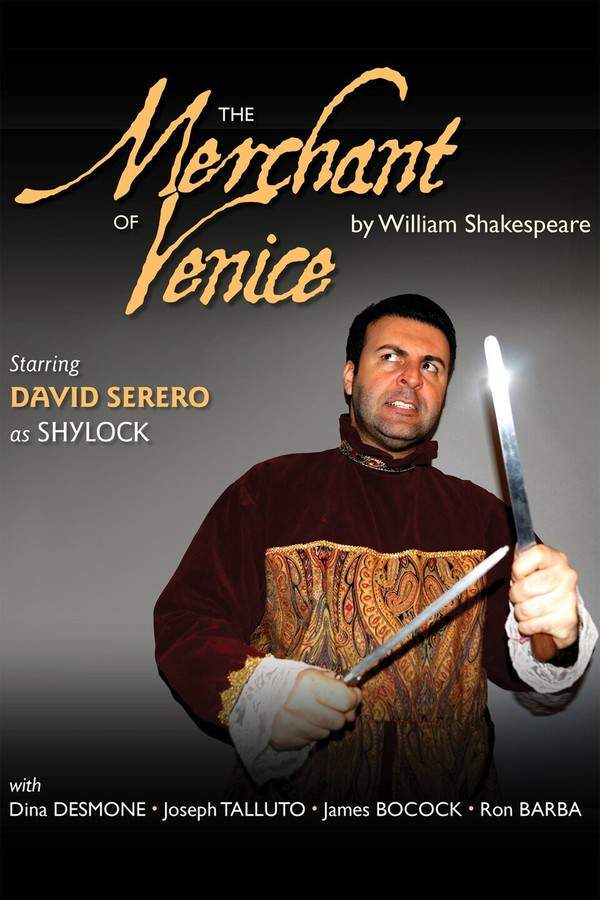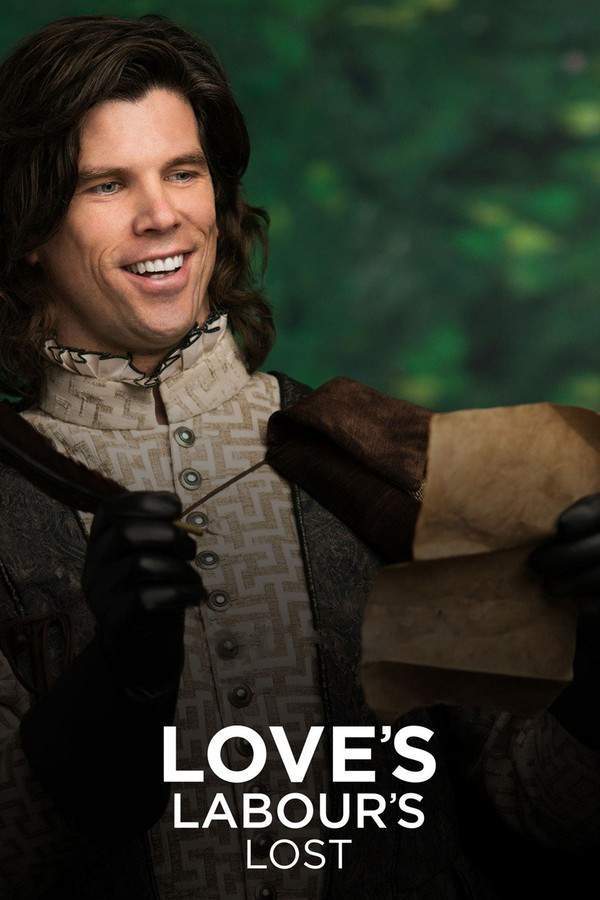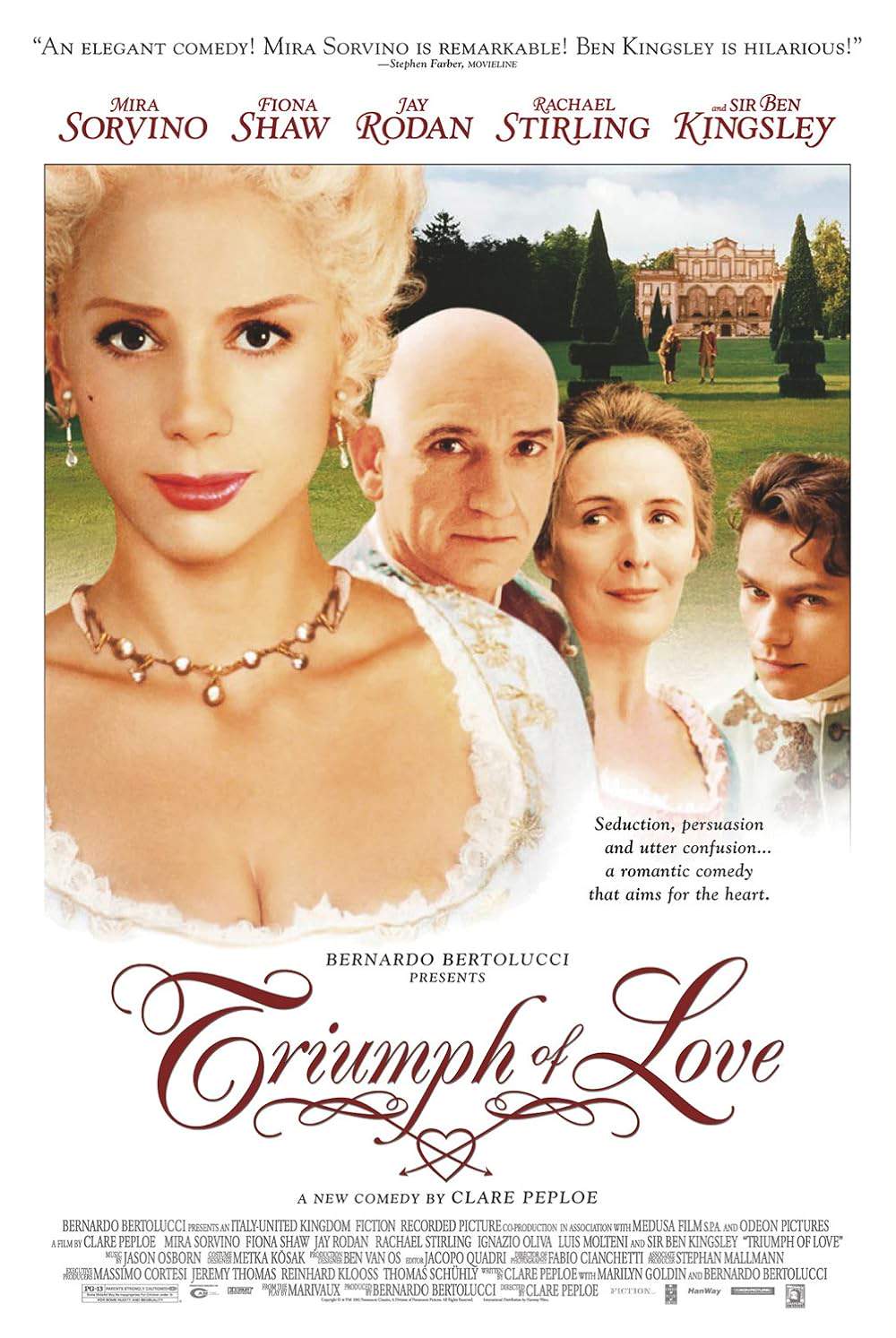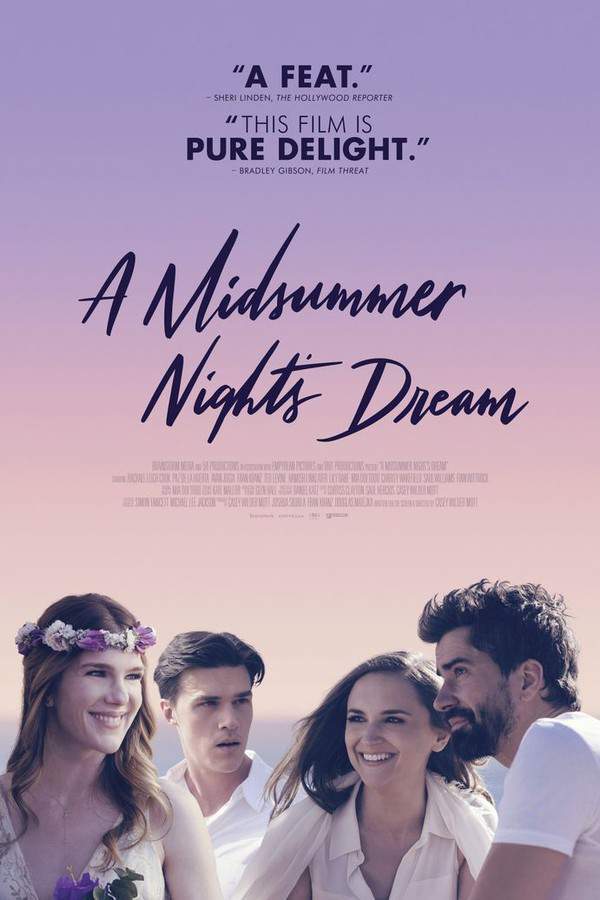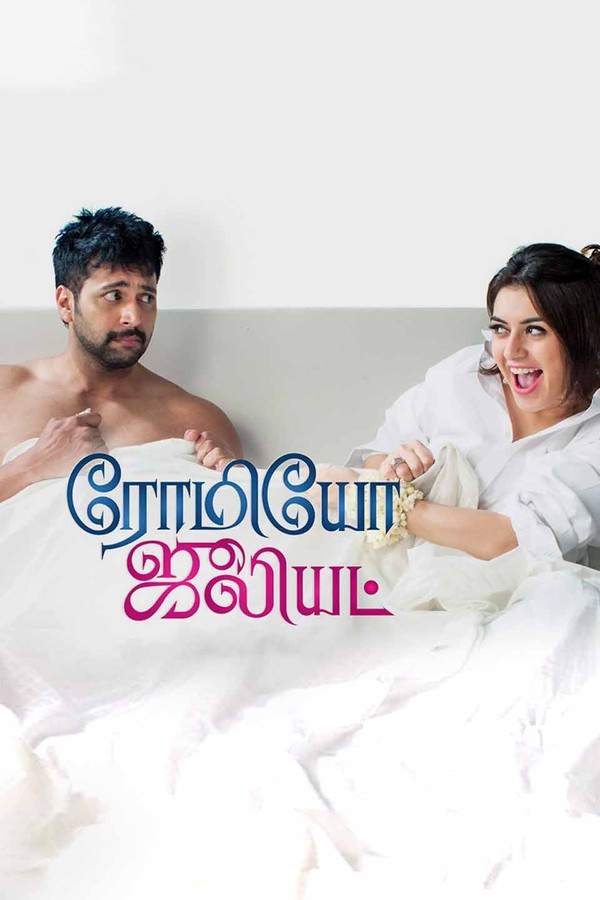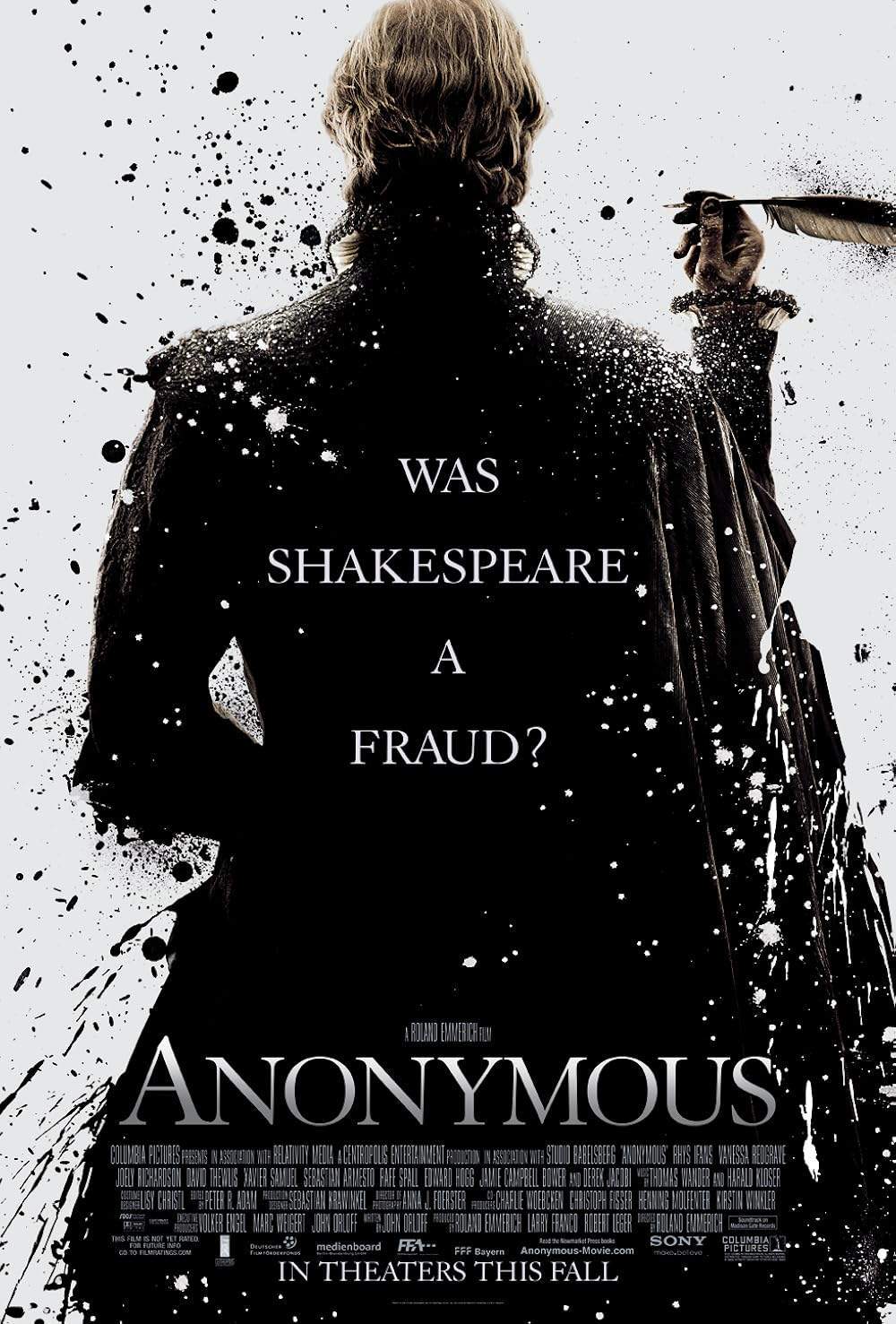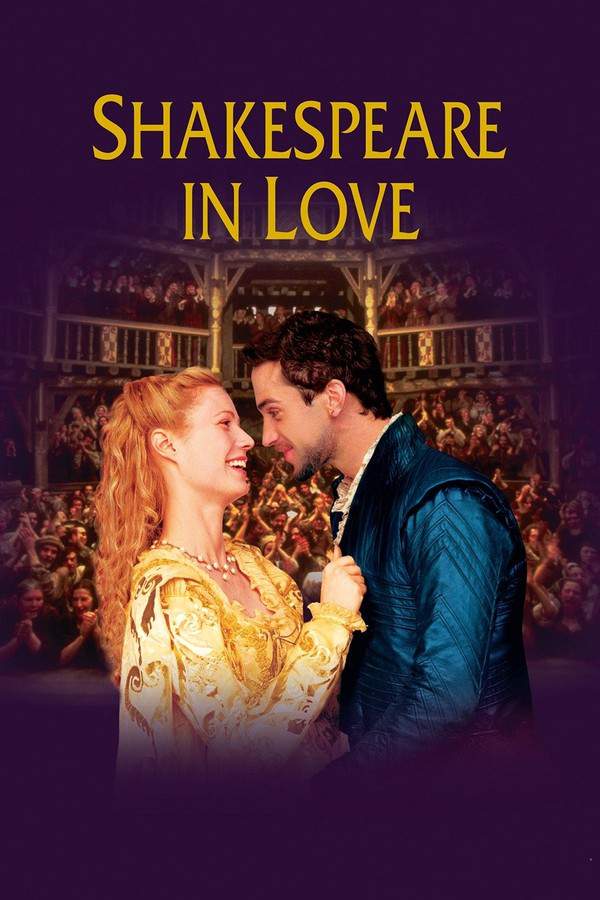
Shakespeare in Love 1998
Directed by

John Madden
Made by

Buena Vista Television
Test your knowledge of Shakespeare in Love with our quiz!
Shakespeare in Love Plot Summary
Read the complete plot summary and ending explained for Shakespeare in Love (1998). From turning points to emotional moments, uncover what really happened and why it matters.
William Shakespeare, portrayed by Joseph Fiennes, finds himself in the throes of artistic struggle in 1593 London as a struggling playwright working for Philip Henslowe, played by Geoffrey Rush, the owner of The Rose Theatre. After discovering that his beloved has betrayed him with a wealthy patron, Shakespeare decides to incinerate his latest comedy, Romeo and Ethel the Pirate’s Daughter, and begins anew with the creation of a tragedy, Romeo and Juliet. Despite his initial zeal, he grapples with debilitating writer’s block, prompting him to hold auditions for the role of Romeo.
Among those auditioning is the remarkably talented Thomas Kent, who captivates Shakespeare with a stunning performance and an evident passion for his previous works. Unbeknownst to Shakespeare, Thomas Kent is actually Viola de Lesseps, a spirited young woman determined to act despite the societal constraints that inhibit female performers. Viola, secretly yearning for her own chance at the stage, disguises herself to follow her dreams.
As Shakespeare uncovers the truth behind his star’s identity, a clandestine and impassioned affair blossoms between him and Viola. With her as his muse, Shakespeare’s inspiration surges, leading to a rapid completion of the play, aided in part by the insights of his friend and rival, Christopher ‘Kit’ Marlowe. However, both are acutely aware of the social and personal constraints that threaten their happiness. Shakespeare is bound by his unresolved marriage, while Viola is facing an arranged marriage to Lord Wessex, an aristocrat in desperate need of wealth.
An unexpected summons from Queen Elizabeth I draws Viola into the court, and in a brave show of love, Shakespeare disguises himself as a woman to accompany her as her cousin. At the royal court, Shakespeare persuades Wessex to wager £50 that a play can portray the essence of true love. If Romeo and Juliet succeeds, Shakespeare stands to gain not just money, but also the respect he’s always desired. The Queen, a fan of his works, is eager to witness the outcome.
Yet turmoil looms when Edmund Tilney, the Master of the Revels, discovers that a woman is part of the theater company—an act of defiance against the laws and customs of the time. The Rose Theatre faces closures, leaving Romeo and Juliet in jeopardy. Just as hope seems lost, Richard Burbage, a rival theater owner, extends his stage for Shakespeare’s use. In a twist of fate, Shakespeare takes on the role of Romeo, while a young boy fills in as Juliet, until puberty strikes just before the performance. In a remarkable turn, Viola leaps onto the stage, stepping into the role of Juliet for Shakespeare, her forbidden love portrayed with captivating passion and sincerity.
As the play unfolds to the rapture of the audience, disaster strikes when Tilney arrives with Wessex, who has traced Viola to the theater. Though the Queen recognizes Viola, she cleverly conceals her true identity, announcing that “Kent” is performing the role of Juliet. Yet even a queen cannot break the bonds of marriage; she thus mandates that Wessex must escort Viola to the New World.
In a bittersweet conclusion, the Queen declares that Shakespeare’s portrayal of love is true, compelling Wessex to pay him the £50 he desperately needs to invest in the Lord Chamberlain’s Men. As Viola and Shakespeare share a heart-wrenching goodbye, each resigned to their individual fates, the film closes with Shakespeare starting a new play, Twelfth Night, Or What You Will, envisioning his beloved washed ashore in a foreign land, and reflecting, >“For she will be my heroine for all time, and her name will be…Viola,” forever honoring the spirit of the courageous woman who dared to dream.
Shakespeare in Love Timeline
Follow the complete movie timeline of Shakespeare in Love (1998) with every major event in chronological order. Great for understanding complex plots and story progression.
Struggles in London
In 1593 London, William Shakespeare is portrayed as a struggling playwright burdened by artistic woes. Working under Philip Henslowe, the owner of The Rose Theatre, Shakespeare is grappling with the pressures of creating compelling theater in a competitive environment.
Betrayal and Despair
Upon discovering his beloved's betrayal with a wealthier patron, Shakespeare is devastated and decides to destroy his latest comedic work, *Romeo and Ethel the Pirate's Daughter*. This moment signifies a turning point as he resolves to shift his focus to crafting a tragedy instead.
Writer's Block
Shakespeare begins to write *Romeo and Juliet*, yet he soon succumbs to debilitating writer's block. Frustrated by his inability to produce new material, he resorts to holding auditions for the role of Romeo in an attempt to find inspiration.
Enter Viola
At the auditions, Shakespeare is enchanted by the remarkable Thomas Kent, who delivers a stunning performance. Unbeknownst to him, Thomas Kent is actually Viola de Lesseps, a determined woman in disguise who is aspiring to pursue her acting dreams despite societal barriers.
Awakening Inspiration
A passionate affair blossoms between Shakespeare and Viola as he discovers the truth about her identity. Her presence reignites his creativity, enabling him to rapidly finish *Romeo and Juliet*, encouraged by his friend and rival, Kit Marlowe, who offers valuable insights.
Social Constraints
As their relationship deepens, both Shakespeare and Viola are reminded of the societal and personal chains that bind them. Shakespeare's unresolved marriage and Viola's impending arranged marriage to Lord Wessex loom over their burgeoning love.
A Royal Summons
Viola receives an unexpected summons to the court of Queen Elizabeth I. In an act of love and bravery, Shakespeare decides to disguise himself as a woman in order to accompany her, passing himself off as a cousin to avoid drawing suspicion.
Wagering on Love
At the royal court, Shakespeare makes a bold wager with Wessex, claiming that his play can capture the essence of true love. This gamble not only has financial implications but also holds the potential for Shakespeare to gain respect among his peers if he succeeds.
Threat of Closure
Trouble arises when Edmund Tilney, the Master of the Revels, discovers that a woman is part of Shakespeare's theater company. This discovery threatens to close The Rose Theatre, jeopardizing the future of *Romeo and Juliet*.
An Unexpected Opportunity
In a twist of fate, Richard Burbage, a rival theater owner, offers his stage for Shakespeare to use. This gesture allows the performance of *Romeo and Juliet* to proceed under increasingly tense circumstances.
Viola Takes the Stage
As the performance nears, Shakespeare takes on the role of Romeo while a youth is cast as Juliet. However, just before the show, Viola steps in to play Juliet, delivering a breathtaking performance that is filled with the depth of her feelings for Shakespeare.
Audience Captivated
The play *Romeo and Juliet* unfolds to an enthralled audience, showcasing the profound storytelling of Shakespeare. However, the excitement is overshadowed by the looming presence of Tilney and Wessex, who threaten to expose Viola's secret.
Identity Revealed
Disaster strikes when Tilney arrives with Wessex during the performance. The Queen, recognizing Viola, cleverly conceals her true identity by claiming that 'Kent' is playing Juliet, yet challenges remain as she cannot break Wessex's marriage bonds.
A Bittersweet Farewell
In a poignant departure, Wessex is compelled by the Queen to escort Viola to the New World. This bittersweet conclusion illustrates the sacrifices made for love and the constraints of their time.
A New Beginning
As the film concludes, Shakespeare starts envisioning his next play, *Twelfth Night, Or What You Will*, inspired by his experiences. His heartfelt farewell to Viola lingers in the air, promising to honor her spirit forever as his muse.
Shakespeare in Love Characters
Explore all characters from Shakespeare in Love (1998). Get detailed profiles with their roles, arcs, and key relationships explained.
William Shakespeare
William Shakespeare is depicted as a passionate and troubled playwright, grappling with writer's block and the pressures of creating a masterpiece. His relationship with Viola serves as both inspiration and tumult, reflecting the complexities of love and artistry. Shakespeare's evolution throughout the film showcases his vulnerability and determination.
Viola de Lesseps
Viola de Lesseps is a headstrong and talented young woman who defies societal norms to pursue her acting aspirations. Disguised as Thomas Kent, she captivates Shakespeare and demonstrates remarkable courage in the face of adversity. Her character symbolizes the struggle for identity and the quest for love in a repressive society.
Philip Henslowe
Philip Henslowe is the pragmatic and somewhat desperate owner of The Rose Theatre. He represents the financial struggles many faced in the theatre business, constantly seeking to keep the theatre running amidst challenges. Henslowe's interactions with Shakespeare provide comic relief and insight into the operational side of theatre.
Shakespeare in Love Settings
Learn where and when Shakespeare in Love (1998) takes place. Explore the film’s settings, era, and how they shape the narrative.
Time period
1593
The story unfolds in 1593, a period marked by the flourishing of English theatre and the works of playwrights such as William Shakespeare and Christopher Marlowe. The late 1500s were a time of cultural vibrancy, but also societal restrictions, especially regarding gender roles in the performing arts.
Location
London, The Rose Theatre, Queen's Court
The movie takes place in London, specifically during the late 16th century when the city was a hub of cultural and artistic activity. The Rose Theatre, a significant venue for plays during this time, serves as a backdrop for Shakespeare's creative struggles. The Queen's Court represents the high societal stakes and politics that intertwine with the arts.
Shakespeare in Love Themes
Discover the main themes in Shakespeare in Love (1998). Analyze the deeper meanings, emotional layers, and social commentary behind the film.
❤️
Love
The film explores the theme of love in its various forms, including forbidden love and unrequited aspirations. Shakespeare's relationship with Viola reflects the struggles of pursuing true love amidst societal limitations. The passionate affair ignites Shakespeare's creativity, intertwining personal emotions with his artistic expressions.
🎭
Theatre
The centrality of theatre as a form of expression is a dominant theme in the movie. It highlights the struggles actors face, particularly women, who are restricted by societal norms. The creation of *Romeo and Juliet* symbolizes the transformative power of storytelling and the significance of performance in the lives of those involved.
⚖️
Societal Constraints
The film poignantly showcases the societal constraints of the Elizabethan era, particularly regarding gender and class. Viola's struggle against these constraints emphasizes the limited opportunities for women in the arts, prompting her to disguise herself to pursue her dreams. Shakespeare also faces pressures from his unresolved marriage and external expectations.

Coming soon on iOS and Android
The Plot Explained Mobile App
From blockbusters to hidden gems — dive into movie stories anytime, anywhere. Save your favorites, discover plots faster, and never miss a twist again.
Sign up to be the first to know when we launch. Your email stays private — always.
Shakespeare in Love Spoiler-Free Summary
Discover the spoiler-free summary of Shakespeare in Love (1998). Get a concise overview without any spoilers.
In the bustling streets of 1590s London, the city hums with the clang of carriage wheels, the chatter of market stalls, and the ever‑present roar of a theater crowd hungry for new stories. Within the cramped, candle‑lit world of The Rose, a young playwright wrestles with the fickle nature of inspiration. William Shakespeare finds himself trapped in a cycle of doubt, his quill poised over empty parchment as the pressures of patrons, competition, and his own reputation loom like looming shadows over the stage.
Amidst the chaotic energy of rehearsals and the rigid conventions of Elizabethan society, a chance encounter introduces a radiant, daring presence. Viola de Lesseps—a spirited young woman yearning for the freedom of performance—begins to stir something deep within the playwright. Their connection is immediate, a spark that promises to turn stale ink into a torrent of words, and it hints at a romance that could reshape both their lives. The film’s tone balances the sharp wit of theatrical banter with the tender, often humorous, awkwardness of burgeoning love.
Supporting figures such as the pragmatic theatre manager Philip Henslowe and the ever‑watchful Queen Elizabeth I add layers of expectation and intrigue, reminding the audience that art in this era is as much a political act as it is a personal one. The world feels alive with period detail—costumed actors, bustling taverns, and the ever‑present threat of censorship—yet it is rendered with a light‑hearted, almost mischievous charm.
In this blend of comedy, drama, and romance, the story centers on the timeless struggle of an artist searching for his muse, and the daring soul who might become it. The atmosphere invites viewers to linger in the romance of ideas, the electric pulse of a theatre about to rise, and the promise that love, in its most unexpected forms, can ignite the greatest works of art.
Can’t find your movie? Request a summary here.
Movies with Similar Twists and Themes
Uncover films that echo the narrative beats, emotional arcs, or dramatic twists of the one you're exploring. These recommendations are handpicked based on story depth, thematic resonance, and spoiler-worthy moments — perfect for fans who crave more of the same intrigue.
Featured on this page

What's After the Movie?
Not sure whether to stay after the credits? Find out!
Explore Our Movie Platform
New Movie Releases (2025)
Famous Movie Actors
Top Film Production Studios
Movie Plot Summaries & Endings
Major Movie Awards & Winners
Best Concert Films & Music Documentaries
Movie Collections and Curated Lists
© 2025 What's After the Movie. All rights reserved.


